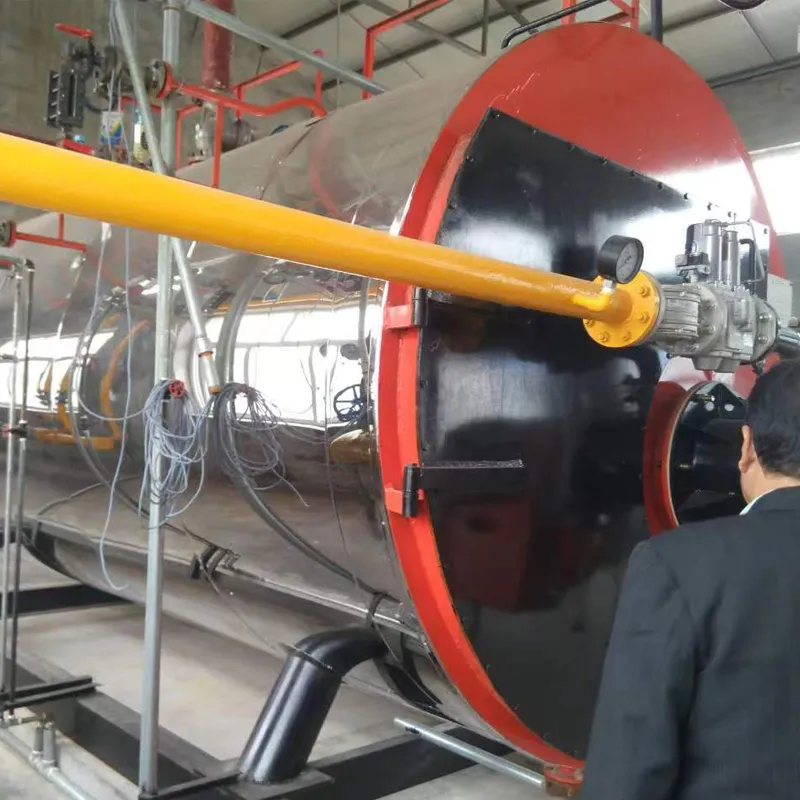
अक्ट . 06, 2024 04:49 Back to list
how to fix boiler no hot water
How to Fix a Boiler with No Hot Water
Experiencing a lack of hot water in your home can be frustrating, especially during colder months. A malfunctioning boiler is often the culprit behind this issue. Fortunately, there are several troubleshooting steps you can take to identify the problem and potentially fix it yourself before calling a professional.
Step 1 Check the Thermostat
The first thing you should do is check the thermostat. Ensure that it is set to a temperature higher than the current room temperature. Sometimes, the thermostat may have been accidentally adjusted or may have malfunctioned. If the thermostat seems to be working properly but the boiler still doesn’t heat, you’ll need to delve deeper.
Step 2 Inspect the Boiler Pressure
Next, check the pressure gauge on your boiler. Most residential boilers operate between 1-1.5 bar when in use. If the pressure is too low (below 1 bar), your boiler may not function properly. To rectify this, you can artificially increase the pressure by using the filling loop—usually a valve located at the bottom of the boiler. Open it slowly until the pressure gauge reaches the appropriate level, then close it securely.
Step 3 Look for Error Codes
Modern boilers often feature digital displays that show error codes when something goes wrong. Consult your boiler’s manual to interpret these codes. They can guide you directly to the source of the problem, whether it’s a faulty sensor, pump issue, or something else. Take note of the code and do some research before attempting any repairs.
Step 4 Check Power and Fuel Supply
how to fix boiler no hot water

If your boiler runs on electricity, ensure it’s receiving power. Look for any blown fuses or tripped circuit breakers. Reset any switches that may have been turned off. If your boiler runs on gas, check the gas supply. Ensure that the gas valve is open and that there are no issues with your gas supply.
Step 5 Examine the Pilot Light
For gas boilers, check if the pilot light is on. If it’s out, follow the manufacturer’s instructions to safely relight it. If you’ve tried to relight the pilot light multiple times and it doesn’t stay lit, you might have a faulty thermocouple that needs replacing.
Step 6 Check for Air Locks
Air locks can prevent water from circulating properly in your heating system. Bleed your radiators to release trapped air, which can improve hot water flow. Use a radiator key to open the bleed valve, allowing air to escape until water starts to flow.
Step 7 Call a Professional
If you've gone through these troubleshooting steps and still have no hot water, it may be time to call in a professional. Complex issues, such as faulty pumps, diverter valves, or heat exchangers, typically require expert attention. Regular maintenance can also help prevent these issues from occurring in the first place.
Conclusion
A lack of hot water can disrupt your daily routine, but often, the solution lies within a few simple steps. By checking your thermostat, boiler pressure, error codes, and pilot light, you can diagnose many common issues. However, do not hesitate to reach out to a qualified technician for assistance with more complicated problems. Timely care and maintenance will ensure your boiler runs efficiently for years to come.
-
High-Efficiency Commercial Oil Fired Steam Boiler for Industry
NewsJul.30,2025
-
High-Efficiency Biomass Fired Thermal Oil Boiler Solutions
NewsJul.30,2025
-
High Efficiency Gas Fired Thermal Oil Boiler for Industrial Heating
NewsJul.29,2025
-
High-Efficiency Gas Fired Hot Water Boiler for Sale – Reliable & Affordable
NewsJul.29,2025
-
High Efficiency Biomass Fired Hot Water Boiler for Industrial and Commercial Use
NewsJul.29,2025
-
High-Efficiency Biomass Fired Hot Water Boiler for Industrial Use
NewsJul.28,2025
Related PRODUCTS






















